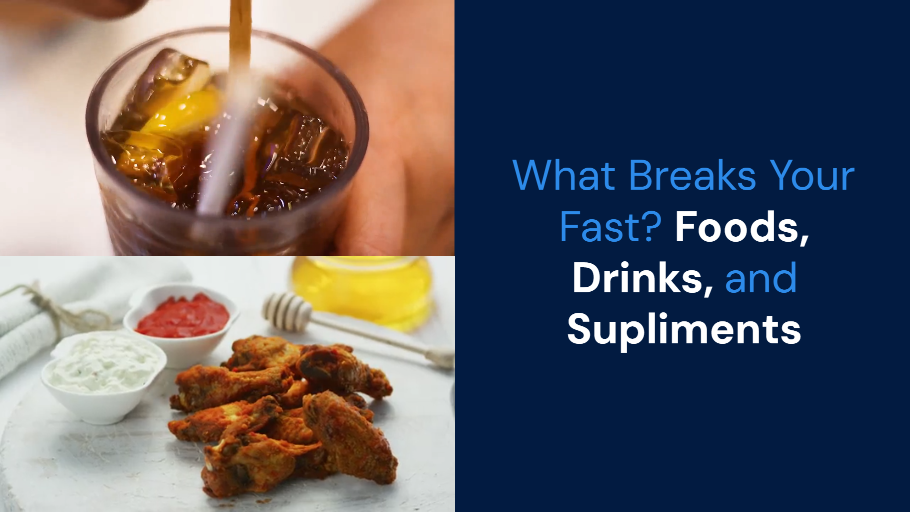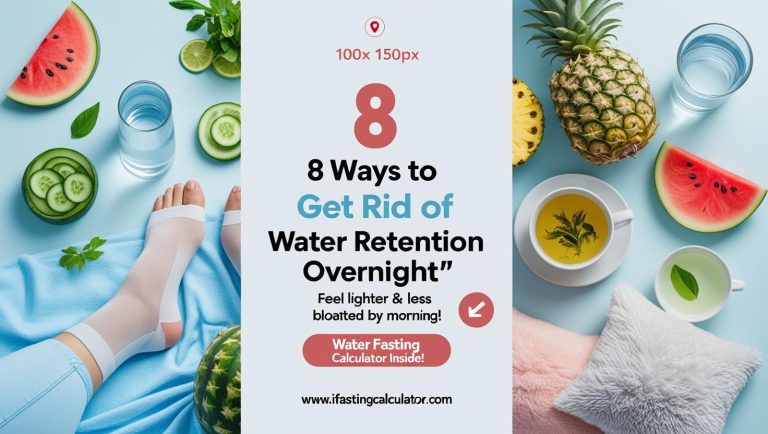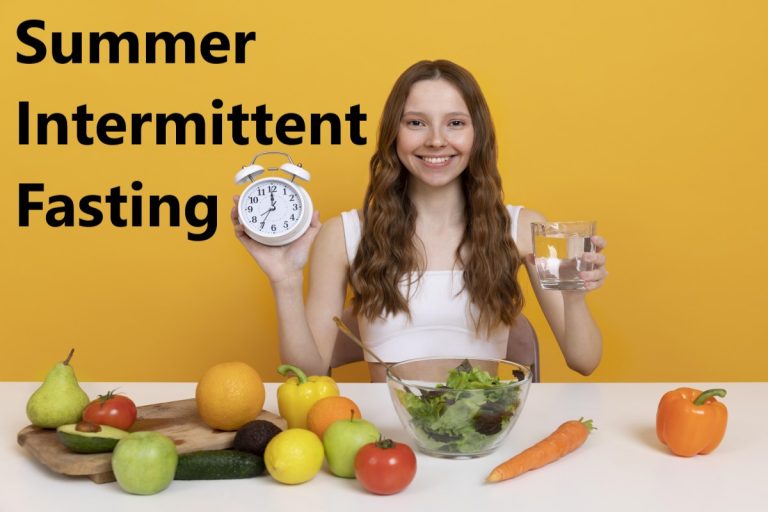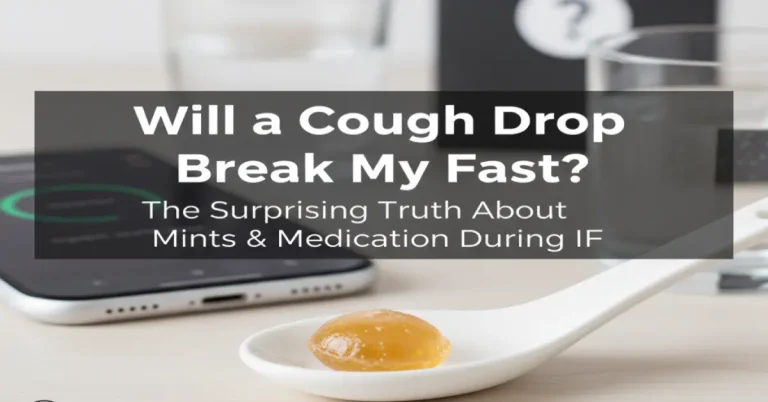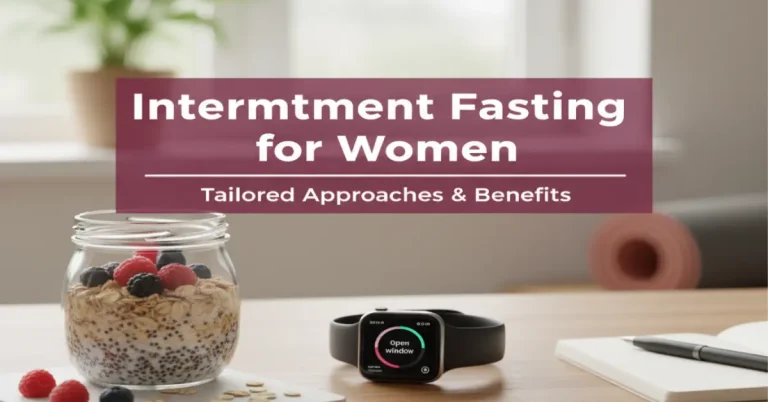What Breaks a Fast? Complete Food & Drink List for Intermittent Fasting
Intermittent fasting has become one of the most popular health and weight-loss strategies worldwide, with millions of people adopting this eating pattern to improve their metabolic health, lose weight, and boost longevity. However, one of the most common questions that both beginners and experienced fasters ask is: what breaks a fast?
The answer isn’t always black and white, as it depends on your specific fasting goals, the type of intermittent fasting you’re practicing, and what you hope to achieve. Some people fast primarily for weight loss, while others focus on blood sugar control, autophagy (cellular cleanup), gut health, or longevity benefits. Understanding what truly breaks your fast can make the difference between success and frustration in your intermittent fasting journey.
In this comprehensive guide, we’ll explore exactly what foods and drinks will break your fast, what’s safe to consume during fasting periods, and provide expert tips to help you maintain a clean fast for maximum benefits.
Understanding the Basics of Fasting
Before diving into specific foods and drinks, it’s important to understand what happens in your body during a fast. When you stop eating, your body goes through several metabolic changes:
- Hours 0-4: Your body uses glucose from your last meal for energy
- Hours 4-16: Glycogen stores are depleted, and fat burning begins
- Hours 16-24: Autophagy increases, and ketone production ramps up
- Beyond 24 hours: Deep autophagy and enhanced cellular repair
The key is maintaining these beneficial states without triggering an insulin response that would break your fast and halt these processes.
Does Water Break a Fast?
No, plain water does not break a fast. In fact, water is the most important beverage during your fasting window. Staying properly hydrated helps prevent common fasting side effects like headaches, fatigue, dizziness, and intense cravings.
Best water options during fasting:
- Plain tap or filtered water
- Sparkling water (unflavored)
- Mineral water
- Electrolyte water (without calories or artificial sweeteners)
Water to avoid:
- Flavored water with artificial sweeteners
- Vitamin-enhanced water with calories
- Coconut water (contains natural sugars)
Pro tip: Aim for at least 8-10 glasses of water during your fasting period, and consider adding a pinch of high-quality salt to prevent electrolyte imbalances.
Does Coffee Break a Fast?
Black coffee does not break a fast. Coffee contains virtually no calories (less than 5 calories per cup) and won’t trigger a significant insulin response. In fact, black coffee can enhance your fasting experience by:
- Suppressing appetite naturally
- Increasing fat oxidation
- Boosting metabolism by 3-11%
- Providing antioxidants and polyphenols
- Enhancing mental clarity and focus
Coffee that’s safe during fasting:
- Black coffee (hot or cold)
- Espresso
- Americano
- Cold brew (unsweetened)
Coffee additions that break your fast:
- Cream or milk (contains protein and fat)
- Sugar or honey
- Flavored syrups
- Butter (as in bulletproof coffee)
- MCT oil
- Artificial creamers
What About Tea & Herbal Drinks?
Plain tea does not break a fast. Like black coffee, most teas contain negligible calories and can actually support your fasting goals.
Fasting-friendly teas:
- Green tea (rich in EGCG, boosts fat burning)
- Black tea
- White tea
- Oolong tea
- Herbal teas (chamomile, peppermint, ginger)
- Rooibos tea
- Pu-erh tea
Teas that break your fast:
- Sweet tea with sugar
- Milk tea or chai with milk
- Bubble tea
- Matcha lattes with milk
- Any tea with added calories
Special note on herbal teas: Some herbal teas like ginger or peppermint may actually aid digestion and reduce fasting-related nausea, making them excellent choices during extended fasts.
Does Apple Cider Vinegar Break a Fast?
A small amount of apple cider vinegar does not break a fast. One tablespoon of apple cider vinegar contains only about 3 calories, which is well within the acceptable range for maintaining a fasted state.
Benefits of apple cider vinegar during fasting:
- May improve insulin sensitivity
- Can help stabilize blood sugar levels
- Supports digestive health
- May reduce appetite and cravings
- Contains beneficial probiotics (if raw and unfiltered)
How to consume apple cider vinegar while fasting:
- Mix 1-2 tablespoons in a large glass of water
- Start with smaller amounts if you’re sensitive
- Choose raw, unfiltered varieties
- Never consume undiluted (can damage tooth enamel)
Foods & Drinks That Definitely Break a Fast
Understanding what breaks your fast is crucial for maintaining the metabolic benefits of intermittent fasting. Here’s a comprehensive list:
Beverages that break your fast:
- All sodas and soft drinks
- Fruit juices (even “natural” ones)
- Energy drinks with calories
- Sports drinks
- Milk and dairy alternatives (almond, oat, soy milk)
- Protein shakes and smoothies
- Bone broth (contains protein and calories)
- Alcoholic beverages
- Kombucha (contains sugars and calories)
Foods that break your fast:
- Any solid food, regardless of quantity
- Gum with sugar or calories
- Mints with calories
- Vitamins or supplements with fillers
- Medications with sugar or calories
- Even small “tastes” or “bites”
Surprising things that might break your fast:
- Diet sodas (may trigger insulin response in some people)
- Sugar-free gum (if swallowed or containing calories)
- Flavored toothpaste (if swallowed)
- Certain medications with sugar coatings
The Gray Area: Artificial Sweeteners and Zero-Calorie Drinks
This is where things get complicated. Technically, artificial sweeteners contain no calories, but they may still trigger an insulin response in some individuals, potentially breaking the metabolic benefits of fasting.
Common artificial sweeteners:
- Aspartame
- Sucralose
- Stevia
- Erythritol
- Monk fruit
The verdict: While research is mixed, many fasting experts recommend avoiding artificial sweeteners during fasting windows to be safe. If weight loss is your primary goal and you feel that diet sodas help you stick to your fast, they may be acceptable in moderation.
Expert Tips for Clean Fasting
- Keep it simple: Stick to water, black coffee, and plain tea during fasting windows
- Avoid anything with calories: Even 10-20 calories can potentially break your fast
- Listen to your body: If something makes you feel hungrier or breaks your mental fast, avoid it
- Stay hydrated: Dehydration can mimic hunger and make fasting more difficult
- Plan your eating windows: Know exactly when you’ll break your fast to avoid impulsive decisions
- Quality matters: When you do eat, focus on nutrient-dense, whole foods
How to Break Your Fast Properly
When your fasting window ends, how you break your fast matters just as much as what you avoid during it:
Best foods to break a fast:
- Lean proteins (eggs, fish, chicken)
- Healthy fats (avocado, nuts, olive oil)
- Non-starchy vegetables
- Complex carbohydrates (sweet potatoes, quinoa)
- Fermented foods (yogurt, kefir, sauerkraut)
Foods to avoid when breaking a fast:
- Large, heavy meals
- Processed foods
- Excessive sugar
- Fried or greasy foods
- Large amounts of refined carbohydrates

Frequently Asked Questions
Will a single calorie break my fast?
Technically, any calorie intake can trigger metabolic processes, but most experts agree that under 10 calories is generally acceptable and won’t significantly impact your fast.
Does chewing gum break a fast?
Sugar-free gum with less than 5 calories per piece is generally considered safe, but avoid swallowing it and be aware that some people may experience increased hunger from the sweet taste.
Can I take supplements during my fast?
Fat-soluble vitamins (A, D, E, K) should be taken with food for better absorption. Water-soluble vitamins and minerals are generally fine during fasting, but check labels for hidden calories.
Does lemon water break a fast?
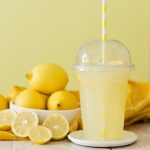
A small amount of fresh lemon juice (1-2 tablespoons) in water contains only 7-14 calories and is generally considered acceptable during fasting.
What about bone broth?
Bone broth contains protein and calories (usually 30-50 calories per cup), so it technically breaks a fast. However, some people use it during extended fasts for electrolytes and nutrients.
Do diet sodas break intermittent fasting?
While diet sodas contain no calories, they may trigger cravings or insulin responses in some people. For strict fasting, it’s best to avoid them.
Can I drink alcohol during my eating window if I’m intermittent fasting?
Alcohol can be consumed during eating windows but may interfere with fat burning and sleep quality. Moderate consumption is key.
Does bulletproof coffee break a fast?
Yes, bulletproof coffee (coffee with butter and MCT oil) contains significant calories and fats, which will break your fast. Save it for your eating window.
Use Our Free Intermittent Fasting Calculator
Not sure how long to fast or when to schedule your eating windows? Our intermittent fasting calculator can help you create a personalized fasting schedule that fits your lifestyle and goals.
Use our intermittent fasting calculator to:
- Determine the best fasting window for your schedule
- Calculate your ideal eating times
- Track your progress over time
- Get personalized recommendations based on your goals
Conclusion
Understanding what breaks a fast is fundamental to intermittent fasting success. The golden rule is simple: if it contains calories, it will likely break your fast. For optimal results, stick to water, black coffee, and plain tea during your fasting windows.
Remember, the “cleanest” fast involves consuming nothing but water, but small amounts of black coffee, plain tea, and apple cider vinegar are generally acceptable and may even enhance your fasting benefits.
The key to successful intermittent fasting isn’t perfection—it’s consistency. Choose an approach you can stick with long-term, and don’t stress over the occasional small deviation. Focus on the bigger picture: creating a sustainable eating pattern that supports your health and wellness goals.
Ready to optimize your intermittent fasting journey? Try our free intermittent fasting calculator to create a personalized fasting schedule that works for your lifestyle and maximizes your results.
Disclaimer: This information is for educational purposes only and should not replace professional medical advice. Consult with a healthcare provider before starting any new eating regimen, especially if you have underlying health conditions.

